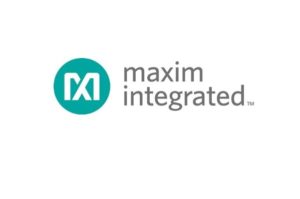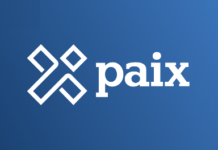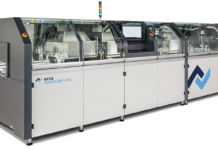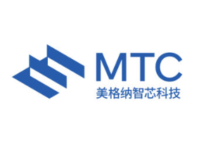
SAN JOSE, Calif., April 20, 2017 /PRNewswire/ — Maxim Integrated Products, Inc. (NASDAQ: MXIM) reported net revenue of $581 million for its third quarter of fiscal 2017 ended March 25, 2017, a 5% increase from the $551 million revenue recorded in the prior quarter, and a 5% increase from the same quarter of last year.
Tunc Doluca, President and Chief Executive Officer, commented, “Our strong growth in the March quarter enabled us to exceed our revenue and profitability targets. This momentum was led by Automotive and Industrial growth relative to the March quarter of last year.” Mr. Doluca continued, “Our return to growth and strong profitability confirms that our R&D investment strategy and manufacturing transformation are on track and delivering great results.”
Fiscal Year 2017 Third Quarter Results
Based on Generally Accepted Accounting Principles (GAAP), diluted earnings per share in the March quarter was $0.49. The results were affected by pre-tax special items which primarily consisted of $13 million in charges related to acquisitions and $3 million in charges related to restructuring activities. GAAP earnings per share, excluding special items was $0.56. An analysis of GAAP versus GAAP excluding special items is provided in the last table of this press release.
Cash Flow Items
At the end of the third quarter of fiscal 2017, total cash, cash equivalents and short term investments were $2.16 billion, an increase of $69 million from the prior quarter.
Notable items included:
- Cash flow from operations: $221 million
- Gross capital expenditures: $8 million
- Dividends: $93 million ($0.33 per share)
- Stock repurchases: $57 million
Business Outlook
The Company’s 90-day backlog at the beginning of the June 2017 quarter was $382 million. Based on the beginning backlog, expected turns, and the start of the transition to sell-in revenue accounting for distribution, our results for the June 2017 quarter are expected to be as follows:
- Revenue: $590 to $630 million (including $15 to $20 million for sell-in transition)
- Gross Margin: 63% to 65% GAAP (65% to 67% excluding special items)
- EPS: $0.54 to $0.60 GAAP ($0.59 to $0.65 excluding special items)
Maxim Integrated’s business outlook does not include the potential impact of any special items related to restructuring activity, acquisitions, or other business combinations that may be completed during the quarter.
Dividend
A cash dividend of $0.33 per share will be paid on June 15, 2017, to stockholders of record on June 1, 2017.
Conference Call
Maxim Integrated has scheduled a conference call on April 20 at 2:00 p.m. Pacific Time to discuss its financial results for the third quarter of fiscal 2017 and its business outlook. This call will be webcast by Shareholder.com and can be accessed at the Company’s website at investor.maximintegrated.com.
A presentation summarizing financial information to be discussed on the conference call is posted at investor.maximintegrated.com.
Contact
Kathy Ta
Managing Director, Investor Relations
(408) 601-5697
|
CONSOLIDATED STATEMENTS OF INCOME |
|||||||
|
(Unaudited) |
|||||||
|
Three Months Ended |
|||||||
|
March 25, |
December 24, |
March 26, |
|||||
|
2017 |
2016 |
2016 |
|||||
|
(in thousands, except per share data) |
|||||||
|
Net revenues |
$ 581,216 |
$ 550,998 |
$ 555,252 |
||||
|
Cost of goods sold (1) (2) |
214,312 |
210,820 |
236,411 |
||||
|
Gross margin |
366,904 |
340,178 |
318,841 |
||||
|
Operating expenses: |
|||||||
|
Research and development |
113,163 |
114,057 |
119,178 |
||||
|
Selling, general and administrative |
73,987 |
71,543 |
71,778 |
||||
|
Intangible asset amortization |
2,348 |
2,348 |
2,538 |
||||
|
Impairment of long-lived assets (3) |
1,000 |
383 |
506 |
||||
|
Severance and restructuring expenses |
450 |
864 |
2,552 |
||||
|
Other operating expenses (income), net |
1,704 |
1,909 |
(55,419) |
||||
|
Total operating expenses (income), net |
192,652 |
191,104 |
141,133 |
||||
|
Operating income (loss) |
174,252 |
149,074 |
177,708 |
||||
|
Interest and other income (expense), net (4) |
(3,884) |
(636) |
(6,373) |
||||
|
Income (loss) before provision for income taxes |
170,368 |
148,438 |
171,335 |
||||
|
Income tax provision (benefit) |
30,155 |
17,961 |
31,525 |
||||
|
Net income (loss) |
$ 140,213 |
$ 130,477 |
$ 139,810 |
||||
|
Earnings (loss) per share: |
|||||||
|
Basic |
$ 0.50 |
$ 0.46 |
$ 0.49 |
||||
|
Diluted |
$ 0.49 |
$ 0.45 |
$ 0.48 |
||||
|
Shares used in the calculation of earnings (loss) per share: |
|||||||
|
Basic |
282,903 |
283,294 |
285,854 |
||||
|
Diluted |
287,882 |
288,106 |
289,783 |
||||
|
Dividends paid per share |
$ 0.33 |
$ 0.33 |
$ 0.30 |
||||
|
SCHEDULE OF SPECIAL ITEMS |
|||||||
|
(Unaudited) |
|||||||
|
Three Months Ended |
|||||||
|
March 25, |
December 24, |
March 26, |
|||||
|
2017 |
2016 |
2016 |
|||||
|
(in thousands) |
|||||||
|
Cost of goods sold: |
|||||||
|
Intangible asset amortization |
$ 11,064 |
$11,755 |
$ 11,829 |
||||
|
Accelerated depreciation (1) |
1,103 |
1,178 |
4,066 |
||||
|
Other cost of goods sold (2) |
6,123 |
||||||
|
Total |
$ 12,167 |
$ 12,933 |
$ 22,018 |
||||
|
Operating expenses: |
|||||||
|
Intangible asset amortization |
$2,348 |
$2,348 |
$2,538 |
||||
|
Impairment of long-lived assets (3) |
1,000 |
383 |
506 |
||||
|
Severance and restructuring |
450 |
864 |
2,552 |
||||
|
Other operating expenses (income), net |
1,704 |
1,909 |
(55,419) |
||||
|
Total |
$ 5,502 |
$ 5,504 |
$ (49,823) |
||||
|
Interest and other expense (income), net (4) |
$ (48) |
$ (5,052) |
$ (45) |
||||
|
Total |
$ (48) |
$ (5,052) |
$ (45) |
||||
|
(1) Includes building and equipment accelerated depreciation related to the Dallas manufacturing facility. |
|||||||
|
(2) Includes expense related to patent license settlement. |
|||||||
|
(3) Includes impairment of investments in privately-held companies and other equipment impairment charges. |
|||||||
|
(4) Includes gain on sale of shares received for the sale of the wafer manufacturing facility in San Antonio, Texas. |
|||||||
|
CONSOLIDATED BALANCE SHEETS |
|||||||
|
(Unaudited) |
|||||||
|
March 25, |
December 24, |
March 26, |
|||||
|
2017 |
2016 |
2016 |
|||||
|
(in thousands) |
|||||||
|
ASSETS |
|||||||
|
Current assets: |
|||||||
|
Cash and cash equivalents |
$ 1,656,727 |
$ 1,687,435 |
$ 1,710,340 |
||||
|
Short-term investments |
499,154 |
399,461 |
150,076 |
||||
|
Total cash, cash equivalents and short-term investments |
2,155,881 |
2,086,896 |
1,860,416 |
||||
|
Accounts receivable, net |
257,592 |
224,342 |
278,502 |
||||
|
Inventories |
241,439 |
236,040 |
234,603 |
||||
|
Other current assets |
60,195 |
75,284 |
88,389 |
||||
|
Total current assets |
2,715,107 |
2,622,562 |
2,461,910 |
||||
|
Property, plant and equipment, net |
636,835 |
660,660 |
748,781 |
||||
|
Intangible assets, net |
103,981 |
117,393 |
188,510 |
||||
|
Goodwill |
491,015 |
491,015 |
490,648 |
||||
|
Other assets |
69,689 |
55,188 |
77,886 |
||||
|
Assets held for sale |
1,156 |
1,156 |
13,733 |
||||
|
TOTAL ASSETS |
$ 4,017,783 |
$ 3,947,974 |
$ 3,981,468 |
||||
|
LIABILITIES AND STOCKHOLDERS’ EQUITY |
|||||||
|
Current liabilities: |
|||||||
|
Accounts payable |
$ 82,938 |
$ 70,505 |
$ 82,696 |
||||
|
Income taxes payable |
4,538 |
3,138 |
30,907 |
||||
|
Accrued salary and related expenses |
135,702 |
109,475 |
151,411 |
||||
|
Accrued expenses |
35,208 |
41,418 |
42,562 |
||||
|
Deferred revenue on shipments to distributors |
35,724 |
36,137 |
34,457 |
||||
|
Total current liabilities |
294,110 |
260,673 |
342,033 |
||||
|
Long-term debt |
991,877 |
991,281 |
1,000,000 |
||||
|
Income taxes payable |
534,028 |
514,498 |
451,099 |
||||
|
Other liabilities |
37,459 |
37,331 |
49,573 |
||||
|
Total liabilities |
1,857,474 |
1,803,783 |
1,842,705 |
||||
|
Stockholders’ equity: |
|||||||
|
Common stock and capital in excess of par value |
284 |
284 |
280 |
||||
|
Retained earnings |
2,169,760 |
2,155,698 |
2,154,767 |
||||
|
Accumulated other comprehensive loss |
(9,735) |
(11,791) |
(16,284) |
||||
|
Total stockholders’ equity |
2,160,309 |
2,144,191 |
2,138,763 |
||||
|
TOTAL LIABILITIES & STOCKHOLDERS’ EQUITY |
$ 4,017,783 |
$ 3,947,974 |
$ 3,981,468 |
||||
|
CONSOLIDATED STATEMENTS OF CASH FLOWS |
|||||||
|
(Unaudited) |
|||||||
|
Three Months Ended |
|||||||
|
March 25, |
December 24, |
March 26, |
|||||
|
2017 |
2016 |
2016 |
|||||
|
(in thousands) |
|||||||
|
Cash flows from operating activities: |
|||||||
|
Net income (loss) |
$ 140,213 |
$ 130,477 |
$ 139,810 |
||||
|
Adjustments to reconcile net income (loss) to net cash provided by operating activities: |
|||||||
|
Stock-based compensation |
18,300 |
18,073 |
17,875 |
||||
|
Depreciation and amortization |
40,473 |
42,140 |
47,088 |
||||
|
Deferred taxes |
(16,967) |
(7,520) |
(333) |
||||
|
Loss (gain) from sale of property, plant and equipment |
4,809 |
3,898 |
3,098 |
||||
|
Loss (gain) on sale of business |
— |
— |
(58,944) |
||||
|
Tax benefit (shortfall) related to stock-based compensation |
— |
— |
545 |
||||
|
Impairment of long-lived assets |
— |
383 |
506 |
||||
|
Impairment of investments in privately-held companies |
1,000 |
— |
— |
||||
|
Excess tax benefit from stock-based compensation |
— |
— |
(1,491) |
||||
|
Changes in assets and liabilities: |
|||||||
|
Accounts receivable |
(33,249) |
29,176 |
(47,322) |
||||
|
Inventories |
(5,505) |
(12,512) |
22,785 |
||||
|
Other current assets |
16,862 |
(7,583) |
(8,947) |
||||
|
Accounts payable |
11,887 |
(11,999) |
8,683 |
||||
|
Income taxes payable |
20,931 |
17,138 |
29,597 |
||||
|
Deferred revenue on shipments to distributors |
(412) |
383 |
2,390 |
||||
|
Accrued salary and related expenses |
26,227 |
(1,651) |
22,078 |
||||
|
All other accrued liabilities |
(3,872) |
(7,773) |
(9,432) |
||||
|
Net cash provided by (used in) operating activities |
220,697 |
192,630 |
167,986 |
||||
|
Cash flows from investing activities: |
|||||||
|
Purchase of property, plant and equipment |
(8,286) |
(15,775) |
(17,530) |
||||
|
Proceeds from sales of property, plant and equipment |
787 |
2,224 |
136 |
||||
|
Proceeds from sale of available-for-sale securities |
— |
26,454 |
— |
||||
|
Proceeds from sale of business |
— |
— |
105,000 |
||||
|
Purchases of available-for-sale securities |
(99,398) |
(225,622) |
(24,861) |
||||
|
Purchases of privately-held companies’ securities |
(162) |
(326) |
(1,921) |
||||
|
Net cash provided by (used in) investing activities |
(107,059) |
(213,045) |
60,824 |
||||
|
Cash flows from financing activities: |
|||||||
|
Excess tax benefit from stock-based compensation |
— |
— |
1,491 |
||||
|
Repayment of notes payable |
— |
(250,000) |
— |
||||
|
Net issuance of restricted stock units |
(8,268) |
(4,239) |
(8,853) |
||||
|
Proceeds from stock options exercised |
17,502 |
7,155 |
9,889 |
||||
|
Issuance of common stock under employee stock purchase program |
(3,194) |
17,658 |
— |
||||
|
Repurchase of common stock |
(56,999) |
(61,235) |
(83,801) |
||||
|
Dividends paid |
(93,387) |
(93,562) |
(85,714) |
||||
|
Net cash provided by (used in) financing activities |
(144,346) |
(384,223) |
(166,988) |
||||
|
Net increase (decrease) in cash and cash equivalents |
(30,708) |
(404,638) |
61,822 |
||||
|
Cash and cash equivalents: |
|||||||
|
Beginning of period |
1,687,435 |
2,092,073 |
1,648,518 |
||||
|
End of period |
$ 1,656,727 |
$ 1,687,435 |
$ 1,710,340 |
||||
|
Total cash, cash equivalents, and short-term investments |
$ 2,155,881 |
$ 2,086,896 |
$ 1,860,416 |
||||
|
ANALYSIS OF GAAP VERSUS GAAP EXCLUDING SPECIAL ITEMS DISCLOSURES |
||||||||
|
(Unaudited) |
||||||||
|
Three Months Ended |
||||||||
|
March 25, |
December 24, |
March 26, |
||||||
|
2017 |
2016 |
2016 |
||||||
|
(in thousands, except per share data) |
||||||||
|
Reconciliation of GAAP gross profit to GAAP gross profit excluding special items: |
||||||||
|
GAAP gross profit |
$ 366,904 |
$ 340,178 |
$ 318,841 |
|||||
|
GAAP gross profit % |
63.1% |
61.7% |
57.4% |
|||||
|
Special items: |
||||||||
|
Intangible asset amortization |
11,064 |
11,755 |
11,829 |
|||||
|
Accelerated depreciation (1) |
1,103 |
1,178 |
4,066 |
|||||
|
Other cost of goods sold (2) |
— |
— |
6,123 |
|||||
|
Total special items |
12,167 |
12,933 |
22,018 |
|||||
|
GAAP gross profit excluding special items |
$ 379,071 |
$ 353,111 |
$ 340,859 |
|||||
|
GAAP gross profit % excluding special items |
65.2% |
64.1% |
61.4% |
|||||
|
Reconciliation of GAAP operating expenses to GAAP operating expenses excluding special items: |
||||||||
|
GAAP operating expenses |
$ 192,652 |
$ 191,104 |
$ 141,133 |
|||||
|
Special items: |
||||||||
|
Intangible asset amortization |
2,348 |
2,348 |
2,538 |
|||||
|
Impairment of long-lived assets (3) |
1,000 |
383 |
506 |
|||||
|
Severance and restructuring |
450 |
864 |
2,552 |
|||||
|
Other operating expenses (income), net |
1,704 |
1,909 |
(55,419) |
|||||
|
Total special items |
5,502 |
5,504 |
(49,823) |
|||||
|
GAAP operating expenses excluding special items |
$ 187,150 |
$ 185,600 |
$ 190,956 |
|||||
|
Reconciliation of GAAP net income (loss) to GAAP net income excluding special items: |
||||||||
|
GAAP net income (loss) |
$ 140,213 |
$ 130,477 |
$ 139,810 |
|||||
|
Special items: |
||||||||
|
Intangible asset amortization |
13,412 |
14,103 |
14,367 |
|||||
|
Accelerated depreciation (1) |
1,103 |
1,178 |
4,066 |
|||||
|
Other cost of goods sold (2) |
— |
— |
6,123 |
|||||
|
Impairment of long-lived assets (3) |
1,000 |
383 |
506 |
|||||
|
Severance and restructuring |
450 |
864 |
2,552 |
|||||
|
Other operating expenses (income), net |
1,704 |
1,909 |
(55,419) |
|||||
|
Interest and other expense (income), net (4) |
(48) |
(5,052) |
(45) |
|||||
|
Pre-tax total special items |
17,621 |
13,385 |
(27,850) |
|||||
|
Other income tax effects and adjustments (5) |
1,957 |
(11,167) |
5,698 |
|||||
|
GAAP net income excluding special items |
$ 159,791 |
$ 132,695 |
$ 117,658 |
|||||
|
GAAP net income per share excluding special items: |
||||||||
|
Basic |
$ 0.56 |
$ 0.47 |
$ 0.41 |
|||||
|
Diluted |
$ 0.56 |
$ 0.46 |
$ 0.41 |
|||||
|
Shares used in the calculation of earnings per share excluding special items: |
||||||||
|
Basic |
282,903 |
283,294 |
285,854 |
|||||
|
Diluted |
287,882 |
288,106 |
289,783 |
|||||
|
(1) Includes building and equipment accelerated depreciation related to the Dallas manufacturing facility. |
||||||||
|
(2) Includes expense related to patent license settlement. |
||||||||
|
(3) Includes impairment of investments in privately-held companies and other equipment impairment charges. |
||||||||
|
(4) Includes gain on sale of shares received for the sale of the wafer manufacturing facility in San Antonio, Texas. |
||||||||
|
(5) Includes tax effect of pre-tax special items and miscellaneous tax adjustments. |
||||||||
Non-GAAP Measures
To supplement the consolidated financial results prepared under GAAP, Maxim Integrated uses non-GAAP measures which are adjusted from the most directly comparable GAAP results to exclude special items related to intangible asset amortization; accelerated depreciation; other costs of goods sold; impairment of long-lived assets; severance and restructuring; other operating expenses (income), net; interest and other expense (income), net, and other income tax effects and adjustments. Management uses these non-GAAP measures internally to make strategic decisions, forecast future results and evaluate Maxim Integrated’s current performance. Many analysts covering Maxim Integrated use the non-GAAP measures as well. Given management’s use of these non-GAAP measures, Maxim Integrated believes these measures are important to investors in understanding Maxim Integrated’s current and future operating results as seen through the eyes of management. In addition, management believes these non-GAAP measures are useful to investors in enabling them to better assess changes in Maxim Integrated’s core business across different time periods. These non-GAAP measures are not in accordance with or an alternative to GAAP financial data and may be different from non-GAAP measures used by other companies. Because non-GAAP financial measures are not standardized it may not be possible to compare these financial measures with other companies’ non-GAAP financial measures, even if they have similar names. The non-GAAP measures displayed in the table above include the following:
GAAP Gross Profit Excluding Special Items
The use of GAAP gross profit excluding special items allows management to evaluate the gross margin of the Company’s core businesses and trends across different reporting periods on a consistent basis, independent of special items including intangible asset amortization, accelerated depreciation, and other costs of goods sold. In addition, it is an important component of management’s internal performance measurement and reward process as it is used to assess the current and historical financial results of the business, for strategic decision making, preparing budgets and forecasting future results. Management presents GAAP gross profit excluding special items to enable investors and analysts to evaluate our revenue generation performance relative to the direct costs of revenue of Maxim Integrated’s core businesses.
GAAP Operating Expenses Excluding Special Items
The use of GAAP operating expenses excluding special items allows management to evaluate the operating expenses of the Company’s core businesses and trends across different reporting periods on a consistent basis, independent of special items including intangible asset amortization, impairment of long-lived assets; severance and restructuring, and other operating expenses (income), net. In addition, it is an important component of management’s internal performance measurement and reward process as it is used to assess the current and historical financial results of the business, for strategic decision making, preparing budgets and forecasting future results. Management presents GAAP operating expenses excluding special items to enable investors and analysts to evaluate our core business and its direct operating expenses.
GAAP Provision for Income Taxes Excluding Special Items
The use of a GAAP provision for income taxes excluding special items allows management to evaluate the provision for income taxes across different reporting periods on a consistent basis, independent of special items including the tax provision impact of pre-tax special items. In fiscal year 2016, we began using a long-term tax rate to compute the GAAP provision for income taxes excluding special items. This long-term tax rate considers the income tax impact of pre-tax special items and eliminates the effects of significant non-recurring and period specific tax items which vary in size and frequency. In the first and second quarter of fiscal year 2017, we used a long-term tax rate of 18%, which was our forecast of the weighted average of our normalized fiscal year GAAP tax rate excluding special items over a four-year period, that includes the past three fiscal years plus the current fiscal year projection at the beginning of fiscal year 2017. We review the long-term tax rate on an annual basis and more frequently whenever events occur that may materially affect the long-term tax rate such as tax law changes; significant changes in our geographic earnings mix; or changes in our corporate structure. Starting in the third quarter of fiscal year 2017, we transitioned to a long-term tax rate of 15%, which reflects the impact of changes in our manufacturing structure and focused research and development expenditures, resulting in improved projections for fiscal year 2017 and future periods.
GAAP Net Income and GAAP Net Income per Share Excluding Special Items
The use of GAAP net income and GAAP net income per share excluding special items allow management to evaluate the operating results of Maxim Integrated’s core businesses and trends across different reporting periods on a consistent basis, independent of special items including intangible asset amortization; accelerated depreciation; other costs of goods sold; impairment of long-lived assets; severance and restructuring; other operating expenses (income), net; interest and other expense (income), net, and other income tax effects and adjustments. In addition, they are important components of management’s internal performance measurement and reward process as it is used to assess the current and historical financial results of the business, for strategic decision making, preparing budgets and forecasting future results. Management presents GAAP net income and GAAP net income per share excluding special items to enable investors and analysts to understand the results of operations of Maxim Integrated’s core businesses and to compare our results of operations on a more consistent basis against that of other companies in our industry.
“Safe Harbor” Statement
This press release contains forward-looking statements within the meaning of Section 27A of the Securities Act of 1933, as amended, and Section 21E of the Securities Exchange Act of 1934, as amended. These statements include the Company’s business outlook and financial projections for its third quarter of fiscal 2017 ending in March 2017, which includes revenue, gross margin and earnings per share. These statements involve risk and uncertainty. Actual results could differ materially from those forecasted, based upon, among other things, general market and economic conditions, market developments that could adversely affect the growth of the mixed-signal analog market, product mix shifts, the loss of all or a substantial portion of our sales to one or more of our large customers, customer cancellations and price competition, as well as other risks described in the Company’s Annual Report on Form 10-K for the fiscal year ended June 25, 2016 (the “Form 10-K”). The Form 10-K may be found at https://www.sec.gov/Archives/edgar/data/743316/000074331616000081/maxim10-kfy2016.htm.
All forward-looking statements included in this news release are made as of the date hereof and based on the information available to the Company as of the date hereof. The Company assumes no obligation to update any forward-looking statement except as required by law.
Sorce: Maxim Integrate and PR News Wire.


















